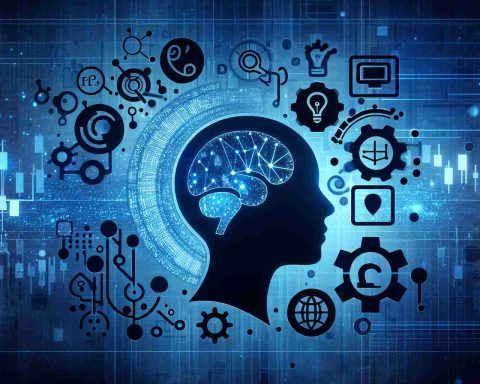Government plans to introduce AI digital textbooks in some grades and subjects in schools next year have sparked a lively debate. Some argue that AI textbooks can analyze students’ weaknesses and provide personalized learning opportunities, while others express concerns about increased screen time and limited effectiveness for struggling students. As the education sector prepares for the impending introduction of AI digital textbooks, conflicting opinions on the matter are becoming more pronounced.
Supporters of AI digital textbooks highlight the advantages of accumulating student learning data and enabling personalized learning by targeting weak areas. Experts point out that AI textbooks can serve as a powerful tool for teachers to provide individualized support, offering features such as pronunciation checks and identifying coding errors. Advocates believe that incorporating AI digital textbooks is essential for future classroom environments and will complement traditional textbooks to enhance learning.
However, opponents raise valid concerns about the potential negative effects of prolonged exposure to digital devices, especially for children and teenagers. Research suggests that increased digital device usage can hinder cognitive development and lead to psychological issues. Critics also question the effectiveness of AI technology in truly supporting academically struggling students, as the emphasis on repetitive learning may not address fundamental educational needs.
While AI digital textbooks offer both advantages and disadvantages, the nationwide adoption presents a unique challenge without clear precedents internationally. Stakeholders in the education sector stress the need for a cautious approach, citing examples like Sweden reverting to traditional teaching methods for children under six. Thorough examination of the implementation speed and strategy, along with public discourse for societal consensus, are deemed essential.
Ensuring effective utilization of AI digital textbooks requires not only training for teachers but also digital literacy education for students and parents. Emphasizing the importance of addressing concerns about “internet addiction,” experts advocate for integrating digital literacy education alongside textbook introduction to mitigate such apprehensions. The introduction of AI digital textbooks starting with specific grades and subjects next year will undergo rigorous reviews before the final decision is announced in November.
The debate surrounding the introduction of AI digital textbooks in schools continues to evolve, with a myriad of implications and considerations coming to light. As the education sector gears up for this significant shift, new questions arise that delve deeper into the potential pros and cons of integrating AI technology into the classroom.
What are some key challenges associated with AI digital textbooks in schools? One pressing concern is the issue of data privacy and security. With AI textbooks collecting vast amounts of student data, there are apprehensions about how this information will be stored, protected, and utilized. Additionally, questions regarding the ethical implications of AI algorithms shaping educational content and student learning experiences are paramount.
Are there controversies surrounding the use of AI digital textbooks that need to be addressed? One notable controversy revolves around the potential for AI to exacerbate existing educational inequalities. Critics argue that students who lack access to reliable digital devices or stable internet connectivity may be further marginalized in a classroom environment increasingly reliant on AI technology. Addressing these disparities and ensuring equitable access to AI resources is a crucial aspect of implementing digital textbooks in schools.
What advantages do AI digital textbooks offer that have not been extensively explored? Beyond personalized learning and data analytics, AI technology can revolutionize the way students engage with content through interactive simulations and virtual reality applications. These immersive learning experiences have the potential to cater to diverse learning styles and enhance student comprehension in ways that traditional textbooks cannot.
What disadvantages of AI digital textbooks have not been thoroughly discussed? A notable drawback is the potential for overreliance on AI algorithms to dictate educational content, potentially limiting critical thinking skills and creativity in students. Balancing the structured guidance provided by AI with opportunities for independent thought and exploration is crucial for fostering well-rounded learners.
In navigating the complexities of AI digital textbooks in schools, stakeholders must carefully weigh the advantages and disadvantages to make informed decisions about the future of education. By addressing key challenges like data privacy, equity concerns, and maintaining a balance between AI-driven learning and traditional pedagogical approaches, the transition to AI digital textbooks can be a transformative one for the education sector.
For further insights on this topic, visit education.

















